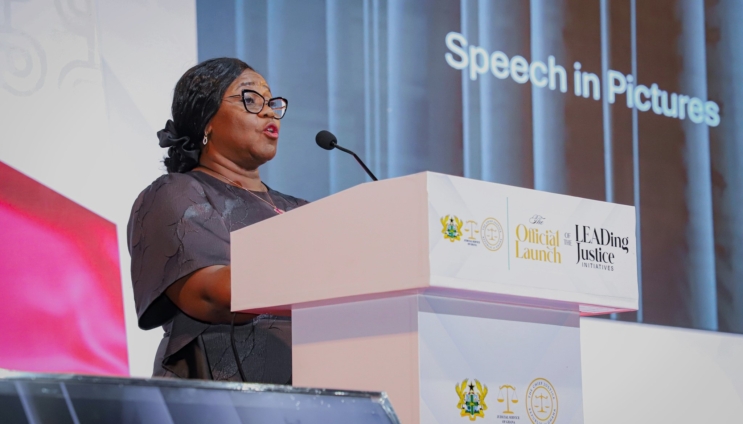Chief Justice Gertrude Araba Esaaba Sackey Torkornoo says there is an urgent need to build a modern archive centre to store all records.
She said that would ensure easy retrievals whenever citizens and court users needed them.
The Chief Justice was speaking at the launch of an initiative dubbed ‘LEADing Justice’, a strategic framework for increasing Legality, Ethics, Assets, Digitalisation, and due process in justice delivery.
The new reforms form part of her vision for improved capacity of all workers within the justice delivery system and a continuous drive towards efficiency.
She said as the documents were being stored, they must be digitised for electronic storage and easy retrieval.
“Again, it is only after digitisation that we can even remotely anticipate effective e-justice. Because virtual trials cannot be conducted without electronic dockets,” she added.
The Chief Justice said it was a strong goal of the vision statement to move registries into paperless modes as soon as possible.
She said the LEADing Justice vision was anchored on the high use of technology to increase speed and transparency in the justice delivery process.
Justice Torkornoo said goals had been set for digital libraries so that all staff and judges would have access to learning, notwithstanding, which part of the country they were.
“Goals have also been set to obtain centrally managed transcription rooms for the early processing of court proceedings so that requests for court processes cannot be affected by localised interests within the courtroom,” she added.
She said that would remove the burden of court users paying courtroom recorders to produce transcripts of proceedings.
The Chief Justice said it would also ensure that records were made available to stakeholders without unnecessary waste of time and costs through travelling to a registry, queuing to pay for a record, and being told to go and come back.
The Chief Justice said land mapping, verification of property details from records on property rates with District Assemblies, verification of details of vehicles from DVLA, and verification of account holding in banks during execution processes, could all be easily done via dedicated and authenticated e-processes between the courts and the relevant institution.
“This can save staff from institutions spending productive time in court just to relay information,” she added.
She said many of those electronic verification processes would cut out the horrible spectre of forgeries that the courts sometimes experienced.
Latest Stories
-
Education Minister opens CIHRM 2025 conference
2 minutes -
The Pulse & Vbyz Experience: A Galdem DJ Mixtape
27 minutes -
Kennedy Agyapong don’t need much marketing – Kwesi Kwarteng says ahead of NPP’s 2026 primaries
28 minutes -
Maison Yusif shines on global stage at Barcelona Perfume Congress
42 minutes -
Shirley Frimpong Manso is perfectionist and doesn’t compromise on that – Joselyn Dumas
45 minutes -
We don’t celebrate our own enough – Shirley Frimpong-Manso to Ghanaians
1 hour -
Genesis Foundation launches campaign to tackle Teenage Drug Abuse on June 21
1 hour -
GII urges Mahama to match words with action on anti-corruption commitments
2 hours -
“I Needed to Speak”: Funke Akindele gets candid about loss and mental health
2 hours -
JoyPrime’s TroTro Diaries partners with COMAC to champion fuel quality and road safety
2 hours -
Clara Kukua Savage
2 hours -
GAFOSC in commanding form ahead of decisive UG Corporate League clash
3 hours -
99% of NPP Council members backed early presidential primary – Justin Kodua
3 hours -
Ablekuma North collation: Police playing funny games with us – NPP
3 hours -
Education Ministry orders nationwide audit over poor quality of SHS meals
3 hours

